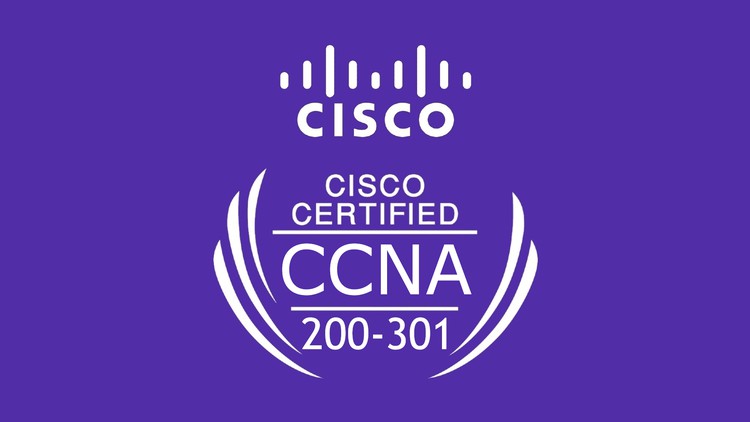Cisco Certified Network Associate CCNA 200-301 Practice Test

Why take this course?
Based on the curriculum outline you've provided for the CCNA Routing and Switching certification, here's a brief explanation of each module and its relevance to the exam:
-
Module 1: Network Fundamentals
- This module covers the basics of network structure and operations, including OSI model, TCP/IP stack, IP addressing (both v4 and v6), subnetting, VLANs, and network topologies. Understanding these concepts is crucial for configuring and troubleshooting networks, which is a significant part of the CCNA exam.
-
Module 2: Cisco Wireless Networking Fundamentals
- This module delves into wireless networking concepts, including WLAN architecture, RF spectrum, antenna types, AP modes (e.g., client, distributor, and mesh), and the physical connections between wireless components such as access points (APs) and wireless LAN controllers (WLCs). Knowledge of these components is essential for configuring and managing wireless networks.
-
Module 3: IP Connectivity
- This module focuses on IP routing, including static routing, OSPFv2 configuration, default routing tables, and the concepts behind first hop redundancy protocols (FHRPs) like HSRP or VRRP. These are critical for understanding how devices communicate across different networks.
-
Module 4: IP Services
- This module covers various network services such as Network Time Protocol (NTP), Domain Name System (DNS), Simple Network Management Protocol (SNMP), static and dynamic NAT, DHCP, and Quality of Service (QoS) features. These services are essential for maintaining a well-functioning and secure network.
-
Module 5: Security Fundamentals
- This module emphasizes security best practices, access control, device hardening, remote access VPNs, and wireless security protocols. Given the increasing importance of cybersecurity, these concepts are increasingly relevant to the CCNA exam.
-
Module 6: Automation and Programmability
- This module introduces students to network automation, controller-based architectures like Cisco's Digital Network Architecture (Cisco DNA), Software Defined Networking (SDN), and RESTful APIs. It also covers configuration management tools such as Puppet, Chef, and Ansible, which are becoming more important in modern network operations.
To prepare for the CCNA Routing and Switching exam, you should focus on understanding each of these modules thoroughly, as they cover the breadth of knowledge required to pass the exam. Remember that practical experience with Cisco equipment is also highly beneficial, as it will help you translate theoretical knowledge into real-world skills. Additionally, utilizing official Cisco study materials and taking practice exams can greatly enhance your understanding and readiness for the certification exam.
Loading charts...